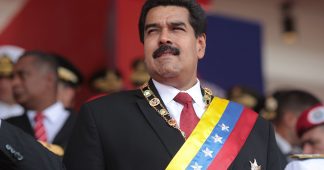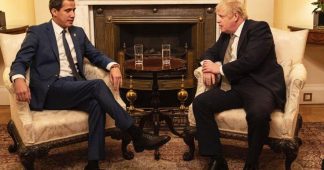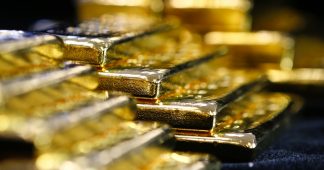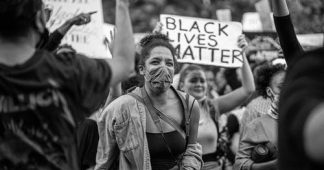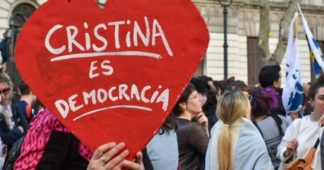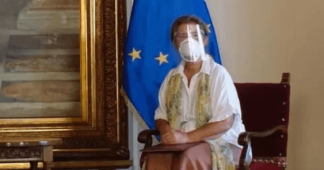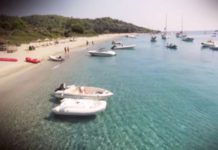This post is also available in: French
Jan 10, 2023
Ignacio Ramonet – Mr. President, first of all I would like to thank you for receiving me again for this interview, it is good to continue this tradition – this is already the seventh occasion when we meet at the end of a year to discuss the next one based on your analysis and assessment, but also on the perspectives of what will happen next. This meeting will revolve, as usual, around three main themes: first we will talk about domestic politics, about the internal situation in Venezuela. Then we will talk about the economy and finally, about international politics. Three questions for each theme. Let’s start with the situation in Venezuela. 2022 has been marked by a series of floods and storms caused in part by the phenomenon known as “La Niña”, and which has caused disasters in Venezuela in particular, such as in Tejerías last October, and I wanted to ask you, Mr. President, how is the situation on the ground, what has your government done to try to help the victims of Tejerías? What do you think about the situation in Venezuela?
Nicolás Maduro – First of all, Ramonet, you are always welcome in Venezuela. This is indeed the seventh time we are doing this interview to start the year, on the first of January. Happy New Year to you, to your loved ones and to all those who see us and listen to us.
Yes, in 2022 we have experienced situations resulting from climate change that have painfully affected thousands of families in Venezuela, especially the case of Las Tejerías, which was an impressive avalanche where from a small ravine a gigantic overflow occurred, a landslide that caused the death of more than 50 people, a group disappeared and hundreds of people were left homeless. We acted immediately in this case and in all the others, because we were also affected in the center of the country, in a region, in an area called El Castaño. We have also been affected in the state of La Guaira on the Venezuelan coast, in Caracas, in the east of the country, in the Andes, Mérida, Táchira, Trujillo; we have been active for months, we are now entering a somewhat quieter season, but we are still present directly, in person, on the ground. Here there are no orphaned people, Ramonet, here the people have a government to protect them, to accompany them in all circumstances, especially in the most difficult, adverse, painful ones, as in the case of this destruction caused by the torrential rains; we have guaranteed the population direct assistance, a roof, constant accompaniment Then we began a process of restoration of all commercial services, public services for the life of the people of Las Tejerías, and the life of all the towns affected by these torrential rains, which has made extraordinary progress.
And the most important guarantee: the guarantee of housing, the right to have a roof over your head. I told the people who lost their homes in Las Tejerías: you will enter the year 2023 with your own home, and thanks to the efforts of the Great Housing Mission Venezuela we have fulfilled our promise. Those people who were so horribly affected, who lost their homes and often their loved ones, now have homes again. So Venezuela is ready to respond. This past year of 2022 has tested us, but once again the power of the people, the power of the Bolivarian National Armed Forces and the political power of the national government have come together to respond to the needs of the people.
Ignacio Ramonet – Mr. President, this year you have launched a new way of governing, which you call the 1×10 system of good governance, and you have defined it as an innovative method; can you explain to us in particular, for the international public, what it is about?
And on the other hand, how do you evaluate this system in the policies developed by your government in particular circumstances, those imposed by the international economic blockade?
Nicolás Maduro – Well, we are renewing forms of direct political action with the popular movement, with the popular power. In Venezuela, there is a powerful power, if I can use the expression: a popular power, a people with power that exercises its leadership in the streets, in the communities, at the base. There are millions of men and women who are leaders in the communities, there are more than 48,000 communal councils at the grassroots level, which function in a very democratic manner; and we also have people who are constantly mobilized through social programs, educational missions, the health mission, with the Supply and Production Committees, the CLAPs (Food distribution committees); people who are active in their communities. So we have been looking for some time for a method by which people could communicate their alerts, their complaints, their needs directly to the national government, in coordination with the regional and municipal governments. Beyond a piece of paper, beyond other forms of expression that people may have, we have designed several mechanisms. First of all, an application, an App that is a social network, Ven-App, and in the Ven-App application we have placed a window: Line 58, so that people can make their complaints and that these complaints, these alerts reach a central presidential command post. We explained to the population that we were going to act through this application – which can be activated from a cell phone, from a tablet, from a computer, from different technological modalities. And indeed, people started to use it.
And we set three priorities to begin with: complaints about situations in the water utility, which, according to all the surveys, was one of the highest priority issues, the most worrying for people. Education and health. We started with those three. And it was fabulous.
Then after two, three months, we incorporated telecommunications, electricity and other sectors. That means that we addressed the equation of the issues that affect the people the most, so that they could voice their complaints. And the result has been wonderful, because it connects us directly to the real problems of the community, and also forces the State, the institutions, the organizations, to respond and solve them in real time. We have achieved an 85% response capacity in terms of complaints, alerts, resolution of, for example, a broken water pipe or sewer pipe.
After that I set up “the 1×10 of good governance,” we call it “1×10” because we ask people to organize themselves into work teams of ten people to take complaints, alerts, to do this community work. And it has worked, almost 7 million people have signed up, including citizens who are already members of the 1×10 of good governance. This system originated, Ramonet, you should know, in mechanisms that we have historically applied to our electoral mobilizations: an activist seeks out ten people to get them to vote. So I said, well, if it works for electoral life, for political life, why couldn’t this immense capacity that people showed in the 1×10 work for governing, [be used] for solving people’s problems? And it’s been wonderful.
On this basis of the “1×10” of good governance, in the face of the problems of education and health very affected by the lack of investment due to the sanctions and the blockade, we created something called the Bricomiles, the Military Community Brigades for Education and Health; their mission is the total structural repair of educational institutions, schools, high schools, health facilities, clinics, comprehensive diagnostic centers, etc. And it has been wonderful.
We are doing miracles, we are doing things that would be impossible to plan because of the lack of resources, because of the blockade, because of the criminal persecution of imperialism; we are doing things with the resources of the people’s power, of the armed forces, and with the resources provided by the national government, we have repaired thousands of schools, 100% repaired and renovated. We have repaired hundreds of clinics and we are making progress on the big problems. So the 1×10 of good governance was a happy creation of 2022. And this year 2023, we’re going to deepen all the mechanisms that lead us to a direct connection with the people, their needs, because that’s when you ask yourself, Ramonet, why does a government exist?
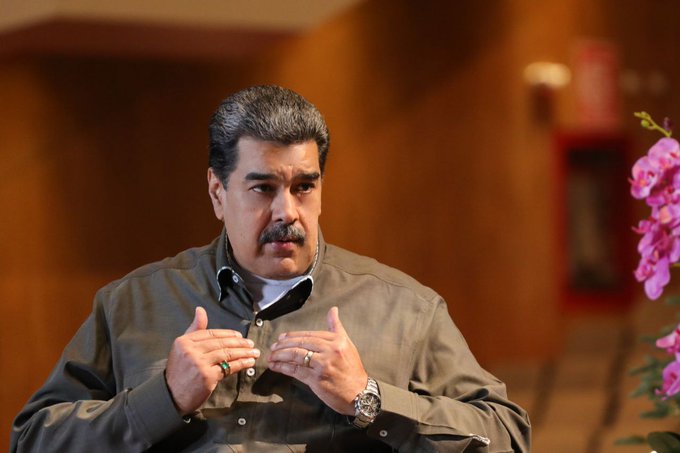
Ignacio Ramonet – Revolutionary in particular, because it is one of the dimensions, I imagine, of the Bolivarian revolution.
Nicolás Maduro – Right.
Ignacio Ramonet – To achieve a kind of direct democracy as well, articulating the society and the government, as you say.
Nicolás Maduro – The 1×10 method is an expression of the real democracy, of the new democracy, of the popular democracy, of the direct democracy. The 1×10 answers the question: What is the purpose of a government? A government must serve the people, the citizens. And how is it going to do that? Well, we create technological means through new social networks, through new applications, and above all through the organization and empowerment of the people, the organization and empowerment of popular power.
Ignacio Ramonet – Mr. President, let’s talk about politics in concrete terms. At the end of November of last year, after a 15 month interruption, talks resumed with a part of the opposition, let’s say the extra-parliamentary opposition.
What is your assessment of the dialogue process that has been relaunched? And on the other hand, what obstacles do you see to the continuation of this dialogue process with the opposition?
Nicolás Maduro – Well, first of all, let’s note that the world is making a mistake, a mistake induced by the press agencies and the big hegemonic media of world capitalism: to say that the Bolivarian government that I preside over, and the Bolivarian forces, are starting a dialogue with “the opposition”.
Ignacio Ramonet – “The opposition”.
Nicolás Maduro – Yes, because the first thing to understand is that there is not “one” but several oppositions, and this process of fragmentation, creation and atomization of the opposition is the result of the extremist policies that have been applied for four years by the government of Donald Trump, to bring Venezuela to its knees, to subjugate Venezuela; As a result of the serious damage caused in the economic, financial, commercial, energetic and social spheres, the opposition imploded in an attempt to apply a policy disconnected from reality, with parallel governments, parallel powers that were not rooted in reality. The US empire, some in Europe, several right-wing governments in Latin America, believed, as we say here, that “the job was done”. That it was enough to appoint “their president”, period.
But they didn’t understand Venezuela, they didn’t understand the republican institutional strength of Venezuela, they didn’t understand the popular strength of the Bolivarian revolution; they thought “that’s it”, that all they had to do was to carry out a campaign of denigration against Maduro and remove him from office. They do not understand that Maduro is the product of a historical process, of a force, of a powerful civil-military union, with deep ideological, cultural and political roots. By not understanding this, they have self-destructed, shattered. So, the first thing we must say is that we are in dialogue with all the oppositions.
The most well-known opposition in the West, called the United Platform of Venezuela, which has been led by Guaidó in an erratic way for some time, and which brings together people like Capriles Radonski, Ramos Allup and others, [as well as] Manuel Rosales governor of Zulia, well, yes, with them we have a conversation, a permanent dialogue, we have negotiations and we have found some agreements. We have signed two agreements between the government of the Bolivarian Republic of Venezuela and the unitary platform of the opposition.
The last agreement we signed is a social agreement elaborated in detail to recover 3.15 billion dollars frozen, sequestered in banks abroad. This money belongs to the Venezuelan state, to Venezuelan society. The plan is to get that money back to invest in public services – electricity, water, education, health – and to mitigate some of the damage caused by the torrential rains of 2022. That agreement was signed, but it was difficult to get the U.S. government to take the steps necessary to free up those resources. I really trust the power of the word given by an honorable person like Gerardo Blyde, for example, who is the head of the negotiating committee of this sector of the opposition; [these people] will have to show the country if they keep their word or not. Let’s hope so.
Now I can also tell you, Ramonet, that in 2022 we promoted dialogue with all the oppositions. I have had meetings at the presidential palace with the Democratic Alliance, which brings together the general secretaries of the Democratic Action party, Copei (a social Christian party), the Primero Venezuela party, the Cambiemos party and the Avanzada Progresista party. This alliance is the one that obtained the most votes in the last elections for governors and mayors in Venezuela. I also met with the Fuerza Vecinal party, a young movement made up of some 40 mayors in the country. I listened to their criticisms, their contributions, their proposals, we listened to each other, we had a long dialogue. I also met with a young Venezuelan leader of the Lápiz party, which brings together a group of educational, cultural and social movements, [I met] with Antonio Ecarri. So we are in a permanent political dialogue with all the economic sectors, with all the social and cultural sectors of the country.
If anything characterizes us, and characterizes me as President of the Republic, it is that I have always reached out, I have always been willing to listen, to dialogue, to talk with all sectors, and I think that this is one of the keys that explains why in 2022 we have consolidated this climate of harmony, of peace, of coexistence that Venezuela has today.
Ignacio Ramonet – Mr. President, we are going to move on to the second topic, we are going to talk about the economy. And in this regard, there is a majority opinion, perhaps because of the atmosphere you were talking about, the harmony that has been created. And that is that most observers consider that the year 2022 has been spectacularly positive for the economy of Venezuela. Your government in particular has won a victory, which many people thought was impossible, in defeating hyperinflation, for example. And now the Central Bank of Venezuela says that growth in Venezuela has been about 19%, while CEPAL (UN) talks about a growth perspective of 12%.
So the question is: what can you tell us about this Venezuelan economic miracle, what is the reason, how do you explain it?
And on the other hand, what are the economic prospects of Venezuela in 2023, what are the objectives you are setting?
Nicolás Maduro – The most difficult years have been those in which this whole group of criminal sanctions has been activated, more than 927 criminal sanctions against the whole Venezuelan society, against the economy, against the productive apparatus, against the oil industry – the great industry of Venezuela. For more than 100 years, Venezuela has lived solely on the petrodollar, on the one hand the flow of dollars, and on the other hand it has spent with a gigantic checkbook to import everything it consumed.
Almost 80, 85% of everything consumed in Venezuela comes from petrodollars, and this has allowed Venezuela to have one of the highest levels of public spending and quality of life, especially during the time of Commander Hugo Chávez.
During those difficult years when the oil industry was attacked, I can give you a figure: Venezuela lost 232 billion dollars, and the gross domestic product suffered an economic damage of over 630 billion dollars. These figures are gigantic; for a country to go from an income level of 56 billion dollars to 700 million dollars in one year is a catastrophe. Nevertheless, thanks to the social policy of the revolution, the social missions of the revolution, we have managed to resist the devastating impact of the sanctions, the persecutions and this whole war of economic missiles, missiles launched against the whole economy, against the whole society.
We have created the basis for a structural recovery process: the first was the activation of the 18 engines of the Bolivarian economic agenda. The second was the establishment of a new exchange rate system. And then there is a whole set of decisions and measures that were taken to protect the industrial system, the agricultural production system, the banking system. It is a set of sound public policies that have been agreed with all the economic, social and political sectors of the country and that are the result of debates, conversations and dialogues.
At the end of 2020, the year of the pandemic, we began to see the first signs of recovery. In 2021, Venezuela had its first year of moderate growth, and this year, 2022, the country’s productive forces were released.
I can give you another fact: Venezuela, which used to depend on imports for 80, 85% of all its food, now produces 94% of the food that reaches Venezuelan homes, a record, an agricultural miracle. Thanks to what? Because hundreds of producers, rural entrepreneurs, have started to work, to produce, and their production reaches the main markets of the country, directly to the homes.
There is an industrial growth that has a great impact but still has a gap, we can grow even more. Venezuela has a double-digit growth this year, the Central Bank of Venezuela has already given some important figures, CEPAL (the United Nations Economic Commission for Latin America and the Caribbeans) has given others in this sense. This growth, I can tell you, for the first time in more than 100 years, is a growth of the real non-oil economy, it is a growth of the economy that produces food, goods, services, wealth, and that also pays taxes. Because we are breaking records in tax collection for the year 2022.
Ignacio Ramonet – In other words, it is also a diversification of the Venezuelan economy, which was previously too closely linked to oil.
Nicolás Maduro – Right. And this is what I am determined to say to all the economic sectors, to all the political sectors, to all of Venezuela, our path cannot be to return to oil dependence, our path must be to free ourselves from oil dependence in a definitive way, to free ourselves from the old rentier capitalist model dependent on oil. Venezuela has what it takes, Venezuela has an industrial apparatus with a good technological level, a good productive capacity, and it proves it.
In the worst years: 2018, 2019, I would say that, and some people would look at me as if I were crazy, “Maduro has gone crazy”. But I knew that what we have, we had studied it. I can tell you: we have a team of the highest level, of the highest technical, economic and academic quality, to formulate public policies, we have a great team for the economy, which has also diversified and listens to all opinions. What could do the most damage to an economy that is emerging from underdevelopment, that is emerging from oil dependency, and that is subject to US and imperialist harassment and persecution, what could do the most damage [to this economy] is for us to fall into dogma. No, we are anti-dogmatic, we have a national project, the Simón Bolívar national project, we have very clear objectives in the construction of a diversified, productive model, and we are adapting, we are agreeing on public policies of structural recovery.
Venezuela, I can say today, is living the first stage of a long cycle of recovery and structural growth, of a new structure, of a new economy, and this is the path we are going to follow.
Ignacio Ramonet – President, there are however some clouds in this very positive panorama, namely the issue of the dollar, the pressure of the parallel dollar and also the rise in prices that has been observed in recent months. Do you think that these two issues, the pressure of the parallel dollar and the rise in prices, could constitute a danger for the country’s economic recovery? What tools do you intend to use to limit the pressure of the increase of the prices and the pressure of the parallel dollar?
Nicolás Maduro – It is a great disruption, these are the wounds that remain from the instruments of the economic war, a phase that we are overcoming step by step, gradually. There was a war against our currency and there were different instruments for that: the Today Dollar, the Cúcuta Dollar, it was a fictitious dollar, for the economic war. Now the mechanisms are more sophisticated, they go through the crypto-currencies, which govern the exchange rate in a speculative way with a political objective, and they are indeed disruptions. I can tell you that if we compare with the years 2020, 2021 and 2022, we have managed to calm down a lot of this disruption, but in the last three months, it has again had a big impact on the new exchange rate system that exists in the country, which is basically a market-related exchange rate system. For 100 years, Ramonet, Venezuela lived with exchange rate systems dependent on the petrodollar; today there is no petrodollar, so the economy must have an exchange rate system where it feeds on the dollar, on foreign currency in its own productive process, following efficient circles that allow it to have a sufficient supply of foreign currency. There are objective and non-objective factors. Among the objective factors that have caused the turbulence we have seen over the last three months is the overheating of trade. Trade has increased sevenfold compared to the rest of the year; for example, in the Banco de Venezuela, our largest bank, normally during the year on a good day of commercial activity up to 100 thousand transactions per minute are carried out, then in October it reached 500 thousand transactions, and now in December there have been days when it has reached 700 thousand transactions per minute. This overheating required a larger and higher amount of foreign currency to move the market. This is an economic reason, but it does not justify the non-objective reasons, namely speculation to cause economic damage, to stab the economic recovery. But we will control this situation; all economic sectors and the government will build a stable exchange rate system, to defend the currency and for the economy to operate with efficient circuits from now on; we will also heal this disruption, this wound.
Ignacio Ramonet – Mr. President, at the end of November your government announced agreements with the American oil company Chevron, and in this regard I would like to ask you if this agreement with Chevron means that Washington lifts some of the sanctions against Venezuela and what could be the impact of the agreements with Chevron on the Venezuelan oil industry.
Nicolás Maduro – Well, it doesn’t mean that the sanctions have been lifted, it just gives Chevron, a US company that now, in 2023, has been producing in Venezuela for 100 years, a license to come and work, to produce and invest. The relationship with Chevron and the negotiations with them have been within the framework of the Constitution, of the laws; the dialogue and the conversations with them have been extraordinary, and I hope that all the projects that have been signed, all the contracts that have been signed, will actually be realized.
And I send a message to all the energy companies in the world, in the United States, in Europe, in Latin America, in Asia; here in Venezuela we have the largest certified oil reserves in the world, here in Venezuela we are certifying the fourth largest gas reserves in the world. Venezuela is an energy power, no one can take us out of the global energy equation. We are founders of OPEC (organization of the petroleum exporting countries), founders and leaders of OPEC-Plus, and we are going to continue this process. So Venezuela has the doors open, with special conditions for investment, for production, with political stability, with social stability. So this is a good step, this Chevron license; when it is put into practice [it] will demonstrate that we can work together and that they can come to Venezuela for another 100 years, if they want to.
Ignacio Ramonet – Mr. President, now we come to the last step of this interview, international politics, a subject that you already know; no one forgets that you were Minister of Foreign Affairs of the Republic for at least eight years.
Last June you made a successful international tour, visiting countries such as Turkey, Iran, Algeria, Kuwait, Qatar, Azerbaijan, and you showed that you were not isolated, nor was Venezuela. On the other hand, there are important geopolitical and energy changes taking place in the world right now, especially due to the conflict in Ukraine, and many capitals – as you suggested at the time – are again getting closer to, or may get closer to Venezuela, which, as you pointed out, is one of the world’s major hydrocarbon reserves.
In this context, I wanted to ask you, what prospects do you see for a possible normalization of relations between Venezuela and the United States, and also for a normalization of relations with the European Union, or with other powers that at one time joined the sanctions against your government?
Nicolás Maduro – Well, with the European Union, I would say that things are progressing well, there is a permanent dialogue with Mr. Borrell, a dialogue with the ambassador of the European Union in Venezuela. Recently, Spain has appointed an ambassador in Caracas, and has approved the Venezuelan diplomat Coromoto Godoy as the new ambassador in Madrid, she will be in Madrid very soon. I think that in general, step by step, with strategic patience, with diplomacy, with respect, we can progress with the European Union.
With the United States, unfortunately, they are still trapped by their insane policy on Venezuela, supporting non-existent institutions, an interim presidency, a fictitious assembly that they continue to support. In one way or another the electoral blackmail of Florida, of Miami-Dade, strongly influences the foreign policy of the White House, of the State Department, [and this] is regrettable. Venezuela is ready, totally ready, to go towards a process of normalization and regularization of diplomatic, consular and political relations with this government of the United States and with the governments that may come; it is one thing to have strategic political differences, a [certain] vision that one may have of the world, and another thing not to have relations. This is the anti-politics that has been imposed by the Trump model. Trump imposed a model on Venezuela, the anti-politics of the coup, the threat of invasions, extremist sanctions, the attempt to break the country from within, to impose a president from without. And all these policies have failed, they have been defeated, first by reality and then by our strength. We are a reality in Venezuela: chavism, bolivarianism, are a powerful reality in Venezuela, beyond Nicolás Maduro. They repeat their little music, the same one they applied to Comandante (commander) Chávez, “the Chávez regime”, “the Chávez regime”. There was never a Chávez regime, there was a constitutional regime, a state of social and democratic law, of justice, and now they are repeating the same formula: The “Maduro regime”. I, Maduro, would like to build a regime for me? Please, a little thinking, a little intelligence.
We are ready for a dialogue at the highest level, for respectful relations, and I hope, I hope, that a halo of light will illuminate the United States of America, that they will turn the page and leave behind this extremist policy, and arrive at more pragmatic policies in relation to Venezuela; we are ready, I hope that this will happen.
Ignacio Ramonet – Mr. President, in Latin America there have been many relatively positive changes from the point of view, I think, of Caracas; this first of January 2023, your friend Lula da Silva is going to take over the presidency of Brazil, it is a huge victory, and there has also been the recent victory of Gustavo Petro in Colombia. We could say that despite the current situation in Peru, we are globally facing a new Latin America with a left-wing majority. The question is: what is your analysis of this new Latin America, and what prospects do you see for it? And in particular, how do you see the evolution of relations between Venezuela and Colombia, when this first of January, in principle, the continuity and the road link between Colombia and Venezuela will be restored?
Nicolás Maduro – In 2022, there was good news, in the context of a Caribbean Latin America in conflict – the imperial project of domination, recolonization, subjugation of our countries is in conflict with the various projects of independence, democratization, improvement of the lives of our peoples ; It is a historical struggle, a historical struggle between the Latin American and Caribbean projects, with their own imprint and their own national sign, and the oligarchic projects linked, unfortunately, and subjected, to imperial interests; in this struggle, it has been said that a second wave is rising, it has been said a lot. In relation to the first wave, we knew everything that came from the triumph of Commander Chávez and the triumphs of Lula da Silva, Néstor Kirchner, Tabaré Vázquez, Evo Morales, Rafael Correa, the Sandinista Front, Daniel Ortega, the strength of Cuba…
Ignacio Ramonet – Fernando Lugo…
Nicolás Maduro – … Mel Zelaya, this whole wave.
Ignacio Ramonet – Lugo in Paraguay.
Nicolás Maduro – This wave that emerged on the continent had a lot of cohesion, a lot of coherence, a lot of strength, a lot of impact. Then came the counter-offensive of the extreme right and now a new liberating, democratizing, advanced and progressive wave seems to be rising with force. The triumph of Gustavo Petro in Colombia has meant important changes for the life and the search for peace of the Colombian people; the triumph and the accession to the presidency of the Republic by Lula da Silva means, finally, a formidable geopolitical advance for regionalist projects, for the Community of Latin American and Caribbean States, for the resumption of the projects of the South, of UNASUR (Union of South American Nations), of the Bank of the South, for the resumption of the integration projects in our countries. So this is good news. With Colombia, this year we have made a lot of progress, such as the free and full opening of border crossings, now the opening of the Antonio Ricaurte bridge in Tienditas, on the border between our state of Táchira and the north of Santander in Colombia. We have also taken important steps in the area of trade. It is estimated that the trade balance in the first months has increased to over 600 million euros. The trade balance between Colombia and Venezuela is just beginning to reach 600 million, which represents a great potential.
Likewise, in Venezuela, peace talks have been set up with President Petro’s total peace project, and we fully support all peace initiatives, including the one that has been set up in Venezuela, in the peace talks with the National Liberation Army. I believe that in this sense, Venezuela and Colombia are embracing the reunion of brothers, and this is good news for both countries and for all of Latin America.
Ignacio Ramonet – Mr. President, one last question. You were recently in Egypt to participate in the Climate Summit and you were able to develop your own vision of solutions to climate change, as well as your analysis of the international geopolitical situation, but you also took advantage of this international meeting to establish direct contacts with international leaders. To conclude this interview, I would like to ask you what is your vision of the new conflictive international scenario, and what do you think are the assets and hopes of a new multipolar world?
Nicolás Maduro – At the summit on climate change, the COP-27 in Egypt, we were able to meet for three days with delegations from more than 190 countries. I can tell you that I shook hands with the vast majority of heads of state, heads of government, heads of almost all the delegations; we had long meetings, conversations with all these presidents and prime ministers. What did I feel, Ramonet? Respect. Admiration for the actions of the Venezuelan people. Recognition from the world’s leaders for the standing Venezuela, for the victorious Venezuela, for the Venezuela that sets an example and that has not allowed itself to be crushed or brought to its knees by the empires of the world. And this is how people from all over the world have told me in private, in conversations, in the hallway, in the meeting room, in bilateral conversations: admiration, respect, recognition for the Bolivarian Revolution, for the people of Venezuela, for all the democratic trajectory that we have achieved during all these years.
We brought the voice of Venezuela: truly the ravages caused by the capitalist model in 200 years have led us to a climate emergency, we are already experiencing a climate emergency. We met with President Petro, the President of Suriname, and we made a proposal that President Lula accepted, to organize a summit of the Amazon Treaty Organization in Brazil very soon, which will bring together all the Amazonian countries of South America; We will bring the voice of Venezuela to reactivate the Amazon Treaty Organization, and also to achieve an emergency plan to recover the Amazon, to defend the Amazon as the great lung of the world; this is one of the great agreements we have reached with President Petro, with the President of Suriname and now with President Lula da Silva of Brazil.
The world is undoubtedly in a very difficult situation, we are experiencing the pains of giving birth to a different world. We have always advocated the construction of a pluripolar, multicentric world, with different poles of development, power, centers that accompany all regions of the world. The old world of the 15th, 16th, 17th, 18th, 19th centuries, of colonialism, then of the neo-colonialism of the 20th century, must be abandoned for good. No one can believe that from two or three metropolises, one can govern the world, one can subdue the peoples. There are already very strong regions, such as Asia, the Pacific, Africa itself, Latin America and the Caribbean, we are blocks of countries that are becoming poles of world power. Do we have to give up our rights to peace, to development, to scientific and technological progress, to our own cultural models, to our own political models? Do we have to give them up? No. Should we assume the unipolar domination of a metropolis that claims to dictate to the world? No. It is the time of a new world, of a new geopolitics that redistributes power in the world. The war in Ukraine is part of the labor pains of a world that will emerge.
We have no doubt that we will be [there], we wanted to be the vanguard, firmly, courageously, from the Bolivarian diplomacy, from the Chávez diplomacy, in the construction of this new world. We contribute in a humble but significant way, from the ideas of Bolivar, from the ideas of Hugo Chávez, in the construction of another world where we can all integrate, where we can live together in peace and where the peoples can overcome the aftermath of centuries of colonialism and neo-colonialism. We believe in this world and this world will emerge, do not doubt it, Ramonet.
Ignacio Ramonet – Thank you very much, Mr. President, for this interview. I would like to take this opportunity to wish you, your family, your country, your people and the Bolivarian Revolution a happy holiday season and a prosperous New Year.
Nicolás Maduro – Well, and my greetings to all of you who are watching and listening to us on television, on YouTube, on Instagram, on Facebook, on Periscope, on Twitter, in all the ways you can see and hear us, my greetings from Venezuela to all of our friends around the world. Thank you Ramonet.
Ignacio Ramonet – Thank you, Mr. President.
Interview conducted in Caracas and broadcast on January 1, 2023
Source : https://t.co/JFsB2jU18Z
Translation [into FRENCH]: Thierry Deronne for Venezuelainfos
We remind our readers that publication of articles on our site does not mean that we agree with what is written. Our policy is to publish anything which we consider of interest, so as to assist our readers in forming their opinions. Sometimes we even publish articles with which we totally disagree, since we believe it is important for our readers to be informed on as wide a spectrum of views as possible.
